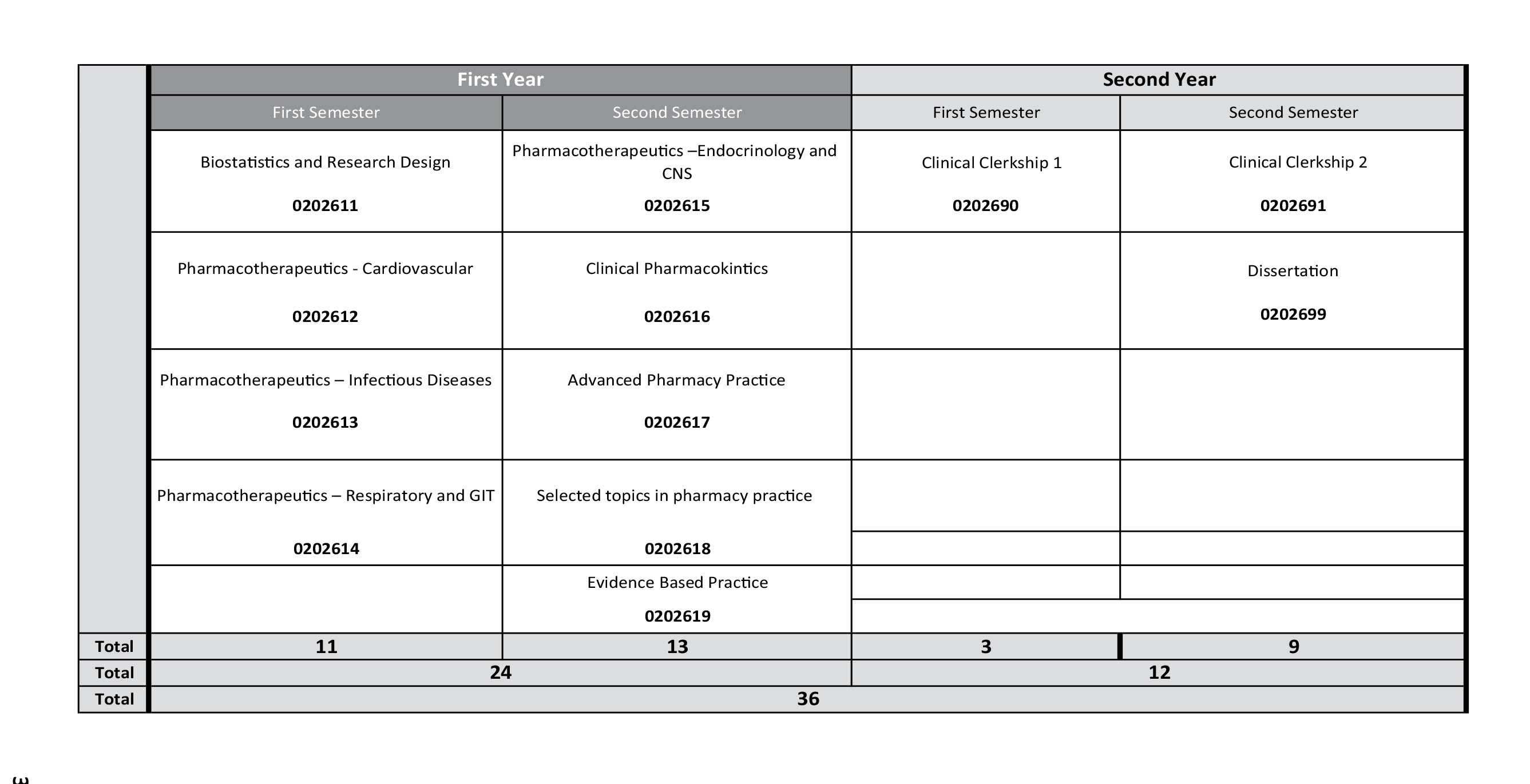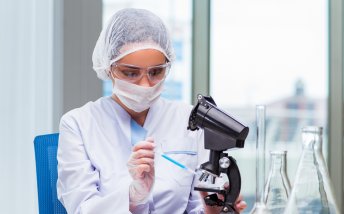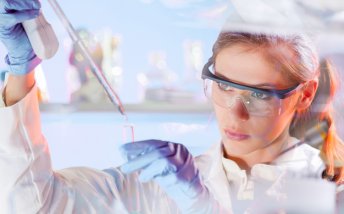Master of Science in Clinical Pharmacy
About the Program
Our Masters in Clinical Pharmacy is a program designed to support pharmacists to develop the knowledge, clinical skills and behaviors required to provide more patient-centered care as part of multidisciplinary healthcare teams.
Vision
To revolutionize clinical pharmacy practice and healthcare through interdisciplinary education, training and research.
Mission
Our mission is to educate and inspire a diverse group of professional clinical pharmacists to be leaders, advance patient care, and improve health for all.
We seek to create, disseminate, and apply new knowledge that endows our graduates with the skills, abilities, behaviors, and attitudes necessary to apply the clinical sciences to the provision of inter-professional patient-centered care, management of medication use systems, advocacy of population health and wellness, and collaborative discovery and implementation of solutions to today’s and tomorrow’s healthcare problems.
Objectives
The following are the MSc. Clinical Pharmacy program’s educational objectives (PEOs):
- Provide students with advanced knowledge and practice of clinical pharmacy
- Enhance critical thinking and problem-solving skills through conducting clinical research of graduate level
- Graduate professionals who are able to advance pharmacy practice in different clinical settings
- Graduate clinical pharmacist able to utilize evidence-based medicine and high standards of ethics in decision-making process
Learning Outcomes
On successful completion of this program, the graduate will be able to:
| # | Program Learning Outcome | Aligned with L9 QFE Descriptor |
|---|---|---|
| 1 | Demonstrate high level of up-to-date knowledge in the area of pharmacotherapeutics and pharmacokinetics | QFE 2, 3, 5 |
| 2 | Design an individualized pharmaceutical care plan, taking into consideration patient’s socioeconomic factors to improve patient’s health outcomes | QFE 4, 7 |
| 3 | Communicate accurate and reliable information to patient and other health care providers. | QFE 5, 8 |
| 4 | Detect, predict, prevent and report adverse drug reactions | QFE 1, 2, 8 |
| 5 | Critically evaluate the literature and undertake practice-based research to enhance problem-solving skills | QFE 7, 8 |
| 6 | Demonstrate the ability to utilize self-learning skills to enhance pharmacy professional practice. | QFE 1, 5 |
| 7 | Employ ethical and evidence-based medicine in decision making process. | QFE 9 |
Job Opportunities
Leadership Positions
As a clinical pharmacist, your opportunities to be a leader are greatly expanding. All pharmacists are leaders in their everyday practices by successfully influencing the behavior of physicians, nurses, pharmacy technicians, interns, support staff, and others to enhance medication safety and optimize patient outcomes. Formal leadership positions are also available to those interested. Within these roles, practitioners may hold many different titles and responsibilities while working with other health care professionals in promoting superior patient care:
- Clinical Pharmacist Specialist
- Clinical Manager
- Clinical Coordinator
- Clinical Pharmacy Operations Manager
- Pharmacy Supervisor
- Pharmacy Assistant Director
- Pharmacy Associate Director
- Pharmacy Director
Academia and Clinical Pharmacy Careers
Clinical pharmacists interested in teaching can working in universities and teaching in colleges of pharmacy.
Research-Oriented Careers
The demand for clinical pharmacist scientists is becoming more widespread within the healthcare arena. Clinical scientists can oversee clinical development strategies, design studies, and analyze data for publication. Other areas include participation and leading preclinical studies on new technologies, and developing protocols for pharmacogenomics and biomarkers. Clinical research does not only involve a “lab-type” research setting. Clinical research also involves studies of human subjects, not limited to surveys, cross-sectional, case-series, case-control, cohort, and first-in-human studies, proof-of-principle projects, and all phases of clinical trials.
Hospital careers
- Different departments in the hospital
- Polyclinics and health complexes
- Centers for drug information and toxicity control
General Admission Requirements
- A Bachelor's degree in Pharmacy or its equivalent is approved by the UAE Ministry of Education with a minimum (GPA) of (3 out of 4) point scale, or its equivalent on the Bachelor's level.
- A valid English Language Proficiency Certificate in one of the below certificates or its equivalent, at least as the following:
| EmSAT | TOEFL ITP | IELTS Academic |
|---|---|---|
| 1400 | 550 | 6 |
| * The exception to this requirement applies to students whose mother tongue is English and who finished a Bachelor’s degree from an institution where English is the language of instruction in an English-speaking country. | ||
Conditional Requirements
If a holder of a bachelor's degree with a CGPA of (3.00 to 4) or equivalent, and does not meet the English language condition set above, he/she should:
- Register in no more than (6) credit hours of courses studied for the graduate program during the conditional acceptance period.
- Achieve at least (3 out of 4) or equivalent, in the first semester of study. Otherwise dismissed from the program.
- At the end of the first semester of the program, the student will achieve at least a mark ( EmSAT 1400), TOEFL 550 or ( IELTS 6) or equivalent exams.
If a holder of a bachelor's degree with a CGPA less than (3 out of 4) or equivalent, and meets the English language condition, he/she should:
- Register in no more than (9) credit hours of courses studied for the graduate program during the conditional acceptance period.
- Achieve at least (3 out of 4) or equivalent, in the first semester of study. Otherwise dismissed from the program.
If a holder of a bachelor's degree with a CGPA less than (3 out of 4) or equivalent, and does not meet the English language condition set above, he/she should:
- Register in no more than (6) credit hours of courses studied for the graduate program during the conditional acceptance period.
- Achieve at least (3 out of 4) or equivalent, in the first semester of study. Otherwise dismissed from the program.
- At the end of the first semester of the program, the student will achieve at least a mark ( EmSAT 1400), TOEFL 550 or ( IELTS 6) or equivalent exams.
To obtain a “Master of Science in Clinical Pharmacy”, a student must successfully complete 36 credit hours, including 24 credit hours of didactic courses, 6 credit hours of the clinical and a dissertation of 6 credit hours. with minimum Cumulative Grade Point Average (CGPA) of 3 out of 4.
| Course No | Course Title | CR.H. | Prerequisite |
|---|---|---|---|
| Specialization Courses (36) CR.H. | |||
| (1) Core Compulsory Courses (24) CR.H | |||
| 0202611 | Biostatistics and Research Design | 2 | |
| 0202612 | Pharmacotherapeutics- cardiovascular | 3 | |
| 0202613 | Pharmacotherapeutics - Infectious Diseases | 3 | |
| 0202614 | Pharmacotherapeutics-Respiratory and GIT | 3 | |
| 0202615 | Pharmacotherapeutics- Endocrinology and CNS | 3 | |
| 0202616 | Clinical Pharmacokinetics | 2 | |
| 0202617 | Advanced Pharmacy Practice | 3 | |
| 0202618 | Selected topics in Pharmacy Practice | 2 | |
| 0202619 | Evidence Based Practice | 3 | |
| (2) Internship (6) CR.H | |||
| 0202690 | Clinical Clerkship 1 | 3 | |
| 0202691 | Clinical Clerkship 2 | 3 | |
| (3) Thesis (6) CR.H | |||
| 0202699 | Dissertation | 6 | (0202690) |
Director of Master in Clinical Pharmacy Program
College of Pharmacy
Al Ain University
P.O. Box. 64141 Al Ain - United Arab Emirates
Tel. : +971 3 7024888
Fax : +971 3 7024777



